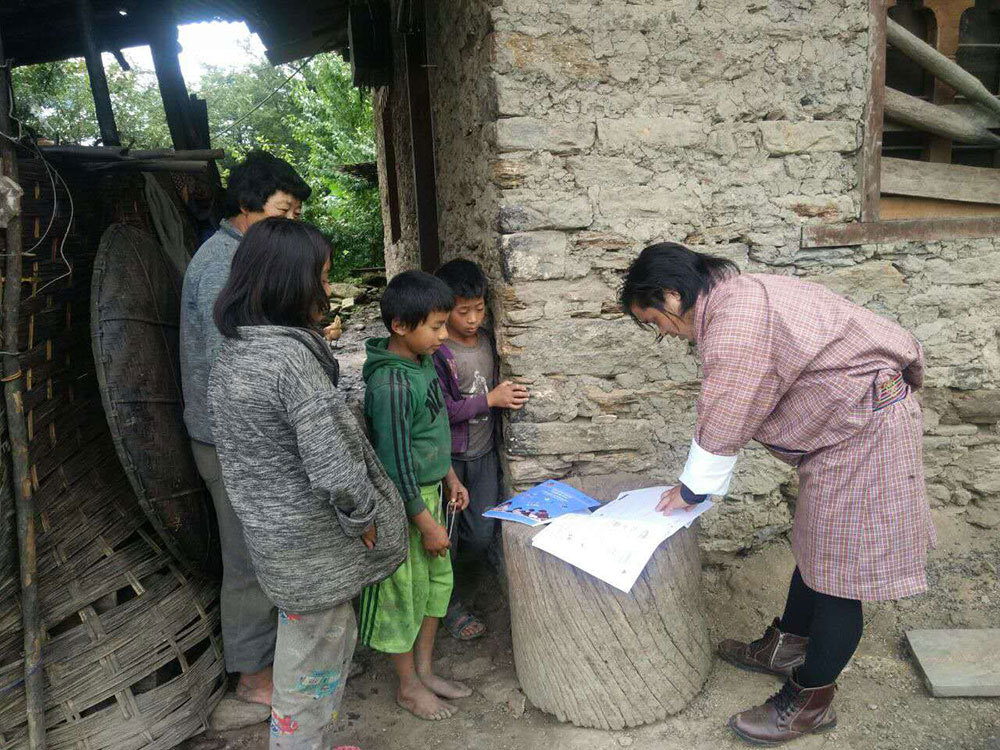Report says schools should remain open during partial lockdown
Yangchen C Rinzin
Schools with special educational needs (SEN) faced difficulties in learning as the general guidelines provided by education ministry did not cater to them during school closure last year, an Education in Emergency (EiE) Report 2021 states.
This is despite the ministry’s effort to keep all students engaged by providing opportunities for continuous learning. When the schools remained closed owing to the Covid-19 pandemic last year, the ministry came up with an adapted and prioritised curriculum.
However, the guidelines provided by Royal Education Council to implement these curriculums helped and were convenient only for regular schools.
A total of 834 students with disabilities including (516 boys and 318 girls) in 62 schools across the country availed the EiE services. Students with disabilities include those enrolled in general schools as well as schools with SEN programme.
The ministry developed an adapted curriculum during the school closure and later developed prioritised curriculum on May 15 2020 to be implemented for Classes PP-XII as part of the second phase of EiE.
The report found that many respondents expressed that the adapted curriculum did not include all the subjects. Some schools with SEN programmes said that their teachers were not trained to deal with students with disabilities online.
The report has recommended that the education ministry should have plans and programs to support students with disabilities during EiE. The study covers all the dzongkhags and thromdes, schools, early childhood care and developments, non-formal educations, learners, teachers, school principals, and parent representatives.
However, challenges relating to online education did not affect SEN students alone.
The study found that there was a lack of authenticity in students’ assignments. “The standard of assignments submitted by the students were too high for their level, which was evident that they did not write their assignments,” many teachers told the team that compiled the report.
Teachers also found that many students had plagiarised their assignments.
Despite teachers following the guidelines provided by education ministry for online teaching, it was found that inadequate ICT skills and knowledge of both teachers and students hindered effective teaching and learning.
There was a lack of knowledge on media literacy and cybersecurity among students.
Online teaching was not only difficult for students, but also an issue for both working parents and homemakers where they complained about facing difficulties in managing time between their work and guiding their children.
“There were hardly any materials available for Dzongkha subject for teaching online, making it difficult to teach,” the study found. “Students could not view files or did not have Dzongkha software installed.”
Meanwhile, the study prepared by the education monitoring division recommended developing TV lessons according to class level instead of Key Stage wise and that the adapted curriculum should also include all subjects.
It also recommended a professional development programme for online teaching, Google Classroom, digital pedagogy, and media literacy for teachers and ECCD facilitators.
“Schools should remain open with adequate infrastructure and safety protocols during a partial lockdown,” the study recommended.
It was reported that 119,772 students used social media App such as WeChat, Telegram, WhatsApp and Messenger to access lessons. A total of 88,118 students accessed lessons through television; 60,507 students accessed through Google Classroom.
Edited by Tshering Palden


